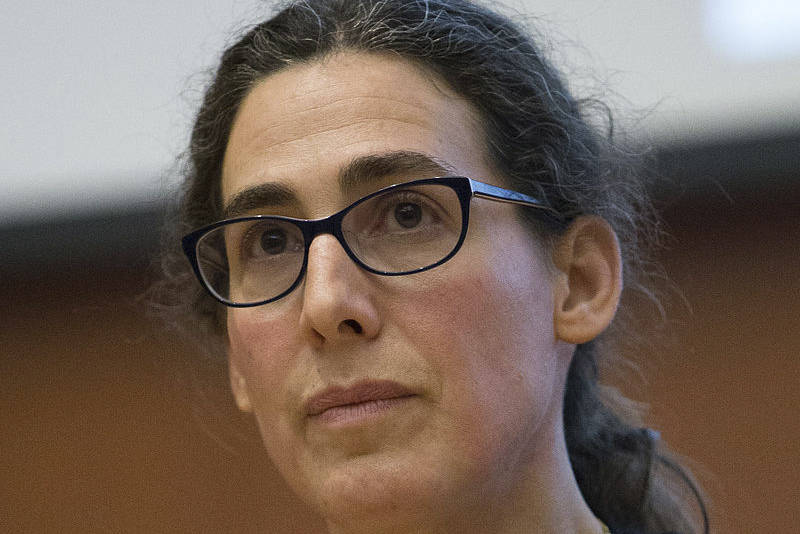As any media pundit will tell you, Serial—launched in 2014 by longtime This American Life producers Sarah Koenig and Julie Snyder—is one of the most popular podcasts of all time. Season One, which re-investigated the 1999 murder of a high-school student in Baltimore, reached 5 million downloads faster than any other podcast in iTunes history. To date, the series has been downloaded some 130 million times.
As a direct result of its wild popularity, Koenig and co-producer Snyder are taking a mini-tour across the country this spring, stopping at the Paramount this weekend. The event features Snyder and Koenig in full-disclosure mode, presenting their process, its challenges, its successes, and its ethical quandaries, along with slides, pictures, and audio clips. That they’re even on tour at all still surprises Koenig. “The fact that people will pay money to go hear Julie and me,” she laughs, “is still somehow shocking, in a great way!” Creating a show-about-the-show like this forced the two to scrutinize their own success. “We started this little project,” she says. “Our numbers are cuckoo. It was an interesting exercise for us … to kind of figure out, ‘Why did this happen, what do we make of it, and what does it mean?’ ”
One thing it means is that the old tricks still work. The elements of Serial that people have rhapsodized over—investigative radio journalism, gripping narrative, a single story told chapter by chapter, true-crime drama—none of these is new, she says. “I think the biggest thing is that people responded to this journalism as if it were entertainment.” And that was (mostly) by design: “We deliberately constructed it to mimic TV in a bunch of ways … People are not used to hearing journalism that way.”
Journalism as entertainment, then: Is that OK? When the drama involves real people, with real lives, subject now to millions of would-be Internet gumshoes? “I think you can do anything well or anything badly,” Koenig says. “We didn’t go tabloid. We didn’t put a ton of photos on our website; we didn’t sort of wallow around in other people’s pain unnecessarily or gratuitously.” The hardest part, for Serial’s producers, was the part they couldn’t control: the surfeit of online conversations about the show, some of which became hurtful for the very people whose privacy they’d been trying to protect. “That was horrible for us.”
To deny, however, that all journalism has some degree of entertainment value is to hold on to a very old and problematic idea about journalistic objectivity. “Objectivity—obviously, it doesn’t exist,” says Koenig. As reporters, “I think honesty is what we should be going for.”
Serial lands in Seattle the same week as a brand-new Serial Productions spinoff: S-Town, set to premiere March 28. This podcast, hosted by This American Life producer Brian Reed, is another true-crime story: two different murders, a bitter feud, and a hunt for buried treasure in a small Alabama town. All seven episodes will drop on the same day, to allow for (or perhaps encourage) “binge-listening”—a term that arguably originated with Serial’s addictive success. But it’s not to be confused with Serial Season Three, which, Koenig says, is in the works. The Paramount, 911 Pine St., 682-1414, stgpresents.org. $29.50–$49.50. $100 VIP tickets include preshow meet-and-greet. 8 p.m. Sat., March 18.
An earlier version of this article incorrectly reported that S-Town’s launch date is March 21. It’s March 28.








